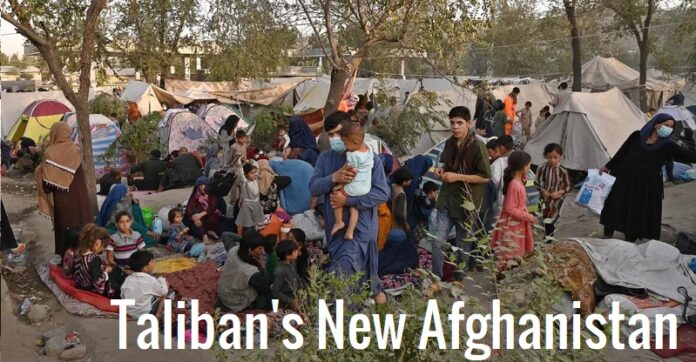| Translate This News In |
|---|
Following the Taliban’s takeover of power and the US withdrawal from Afghanistan, the people of the strife-torn country are experiencing uncertainty, poverty, and starvation. According to Hollie McKay of The Dallas Morning News, “immediately after Afghan President Ashraf Ghani fled on August 15, allowing the Taliban’s then-militia in the mountains to seize the reins of a nation of 38 million,” More than USD 9 billion in reserves to the country’s central bank have been frozen by Washington.
For over two decades, the US taxpayer subsidised Afghanistan’s faltering economy. The World Bank and the International Monetary Fund halted lending, and the Financial Action Task Force, a Paris-based organisation that tracks global terrorism, ordered its member countries to stop sending money to the Taliban.
According to McKay, the issue is simply getting worse with each passing day.
As a result, while one war has legally ended with the United States’ exit from Afghanistan, it feels as if another is just getting started.Afghanistan may not have the bombs and bullets of the past, but it is still a bloody country. Civilians are always the ones that suffer. Food and other essentials are becoming more expensive by the day, aggravated by fast inflation. As a result, the Afghani, the national currency, is losing value, and there is a severe scarcity of hard currency.
Taliban guards wield menacing sticks to keep the people in line as besieged Afghans wait in the scorching heat outside the banks for more than three days without food or drink. The Dallas Morning News stated that due to a severe scarcity of actual money, each household may only withdraw a maximum of USD 200 each week.
Several employees who used to work for the government or the military have not been paid in months, including the last month of the previous administration, according to McKay. The United Nations has warned that 97 percent of Afghans might fall into poverty in the next weeks, a significant increase from the 72 percent estimated immediately before the Taliban’s victory.
Afghans, unfortunately, have become recurrent victims of cold statistics. Faces of dads, mothers, sons, and daughters may be seen behind those figures. Each of them has a war tale to tell, despite the fact that virtually all of them never wanted to go to war, according to McKay. With a sigh, one driver explains, “We Afghans are unlucky people.” “But look at this beautiful place. We would be the luckiest people if the wars ever really stopped.”
Many government functions, including those in the health care sector, have come to a halt. Girls’ education has been halted, according to The Dallas Morning News, with Taliban officials claiming that they lack the financial resources to ensure complete gender segregation, as per their strict interpretation of Islamic values. Furthermore, employment is scarce in almost every sector. There are no concrete numbers, but nearly everyone you encounter is begging to either leave or find employment. Millions of people who worked for the government only a few weeks ago are now unemployed.
Doctors and lawyers, as well as artists, reporters, and businessmen in the private sector, have been forced into a frightening new realm of the unknown. According to McKay, Afghans who are left behind to pick up the pieces of their uncertain life experience a high level of insecurity.
The Taliban reestablished the Ministry for Propagation of Virtue and Prevention of Vice, which had been abolished during the US invasion, in the weeks following their unexpected ascension to the throne. This instilled dread in Afghans, who recall the country’s harsh and brutal application of Islamic rule. “We will punish according to Islamic standards,” Mohammad Yousuf, who claims to be approximately 32 years old and is in charge of Afghanistan’s “central zone,” informs me after reluctantly agreeing to an interview with a woman. “We will punish in accordance with Islam’s principles.”
Internal power struggles and splintering among the Taliban’s senior ranks have also been reported. According to Mckay, there is an obvious sense that Afghanistan is perpetually teetering, waiting for one conflict to conclude and another to begin.


















